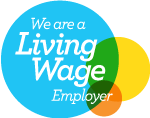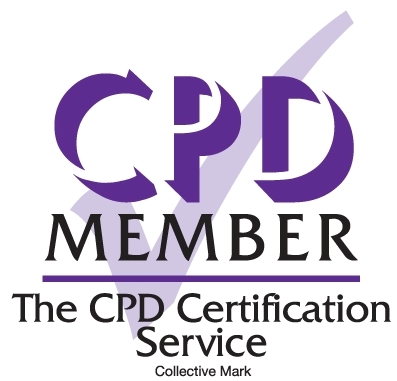Where to Get Urgent Help for Mental Health
If you need help for a mental health crisis or emergency you should seek assistance urgently. An emergency is any time that you, or someone you are supporting feels unsafe and are at risk of hurting themselves (by attempting suicide or other harm) or hurting someone else. You should:
- call 999 for an ambulance,
- go to A&E
- or call your local mental health crisis line.
You can find the urgent mental health helpline for your area here on the NHS website
If you have to wait for assistance Mind has some practical tools to help yourself at the time of crisis
If you feel able to keep yourself/the person you are supporting safe in the short term but need help as soon as possible you can get an urgent appointment with a GP, either by calling your local GP Surgery or by calling 111. It will be with the first available doctor so may not be your regular GP, but they can support you with information, medication and/or referals for additional support.
Free Listening Services
If you need someone to talk to, there are a number of free, confidential and anonymous helplines that you can call. They are manned by trained volunteers who are there to talk to, and will listen to you without judgement
Whatever you're going through, The Samaritans offer a safe space to talk, call free anytime call 116 123 (UK Wide), or 08081640123 (Welsh Language Line)
Free and confidential text messaging support service for anyone struggling to cope- Shout Crisis Text Line Text 85258 (Uk Wide).
Mental health helpline for Wales offering confidential listening and support service- C.A.L.L. call freephone 0800 132737, or text help to 81066 (Wales only).
What to Do If You Have a Safeguarding Concern
If you have a safeguarding concern about a child or adult, you should act on it immediately.
If you're worried about a child, even if you're unsure, you can speak to the NSPCC about your concerns. Whether you want to report child abuse and neglect or aren't sure what to do, they are there to listen, offer advice and support, and can take the next steps if a child is in danger. The NSPCC are the only UK children's charity with statutory powers, which means they can take action to safeguard children at risk of abuse within the UK.
You can contact the NSPCC UK Helpline by calling 0808 800 5000 or emailing help@NSPCC.org.uk. If you think a child is in immediate danger, please call the police on999straight away.
If you work in a school or college setting speak to your Designated Safeguarding Lead and follow you school’s safeguarding policy.
If you work in a school or college in England, see Keeping Children Safe in Education 2023 for the statutory guidance for schools and colleges in England and Keeping Learners Safe, for school’s in Wales.
If you work with children in England but are not from a educational setting, please refer to Working Together to Safeguard Children 2023.
If work with children or adults in Wales, and have a concern, please refer to Working Together to Safeguard People: Code of Safeguarding Practice or for more information and to see contact details for regional safeguarding boards in Wales, please click here.
If you think an adult is in immediate danger, please call the police on 999 straight away. You can also contact Ann Craft, a leading UK authority on safeguarding adults within the UK for further support and advice at https://www.anncrafttrust.org/help-advice/
What To Do If Your Child Needs Additional Support
Some children need extra support at school to help them to learn, this is special educational needs support (SEN support). Every school will have an SEN coordinator (SENCO). If you think your child needs help, speak to the SENCO to see how they can support your child. If the school cannot meet your child's needs with the resources they have, you can request your local authority to carry out a Education, Health and Care needs assessment (the SENCO should be able to support you with this). If the local authority decide that your child needs extra help they will give them a Educational, Health and Care Plan (EHCP). You can find out what support is available in your area by searching for "Local Offer' on your Local Authority website.
Life doesn't always go the way we expect or want it to go but there are many organisations that exist to support others. If you're finding things hard, we'd encourage you to reach out for help, you will be met with no judgement and you don't have to wait until things are at crisis point before asking for help. Some of the organisations that offer support are:
- Mind offers mental health support through information, advice and services.
- Young Minds offers mental health support for young people, parents and professionals. Young Minds
- The Mix is the UK’s leading digital charity for under 25s, reaching over 6 million young people each year. Whatever issue a young person is facing, The Mix is always there for them – via otheir website, over the phone or via social media. Support is free, confidential and anonymous and can be accessed wherever young people are.
- NSPCC offers services to prevent abuses, help rebuild children's lives and support families.
- Childline helps anyone under 19yrs in the UK with any issue they are going through. You can talk about anything big or small with their trained counsellors.
- Winstons Wish supports bereaved children, young people, their families and the professionals who support them.
- Luna Foundation supports children and young people who have experienced the loss of a parent or caregiver to suicide
- Relate offers relationship, family, children's and young people's counselling.
- Refuge are the largest domestic abuse organisation in the UK supporting survivors to overcome the physical, emotional, financial and logistical impact of abuse.
- Galop support LGBT+ people who have experienced abuse.
- LGBT Foundation is a national charity delivering advice, support and information services to lesbian, gay, bisexual, and trans (LGBT) communities.
- Switchboard provides a one-stop listening service for LGBT+ people on the phone, by email and through Instant Messaging.
- The Proud Trust- home of LGBT+ youth.
- Womens Aid domestic abuse support for women and children.
- Working Families is the national charity for working parents and carers.
- Gingerbread provides information to support single parents and their famillies.
- Action for Children provide practical and emotional care and support for children and young people.
- Family Action offers support for financial hardship, mental health problems, social isolation, learning disabilities, domestic abuse, or substance abuse and alcohol problems.
- Every Family offers support to children and famillies in Bristol and South Gloucestershire affected by parental offending.
- Quell offer free digital mental wellbeing support for adults across the UK.
- Kooth offer free, safe and anonymous mental health support to young people/teenagers.
- Hub of Hope is a Mental Health support database bringing local, national, peer, community, charity, private and NHS mental health support and services together in one place.
Find A Therapist
When looking for support, membership of a professional body gives assurance that a therapist is fully qualified to professional standards. You may like to look at:


